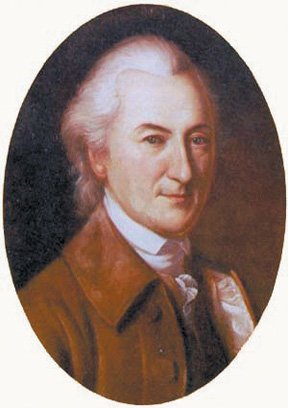It amazes me how the evolution of language has played an
important but often overlooked role in our ongoing American
experiment. Take the word
”
American,
”
for example. In the 1760s,
”
American
”
was a derogatory description. An
”
American
”
during colonial times was a provincial rube, a country hick, a
yokel on the fringe of the British Empire.
It amazes me how the evolution of language has played an important but often overlooked role in our ongoing American experiment. Take the word “American,” for example. In the 1760s, “American” was a derogatory description. An “American” during colonial times was a provincial rube, a country hick, a yokel on the fringe of the British Empire.
“Democracy” is another word proudly brought out in Fourth of July speeches. But its meaning during colonial times was unlike how we define it in the 21st century. For the Founding Fathers, “democracy” connoted populist mob rule leading to chaos.
Then there’s the term “liberal.” In recent years, the word “liberal” has evolved into a hot-button pejorative label in modern America’s political arena. Politicians with conservative leanings sneeringly depict their Democrat opponents as “liberals” as if the term is some kind of slur on American values.
This hijacking of the term “liberal” is a remarkable development in English language evolution. Our nation’s Founding Fathers would find it amusingly ironic how we’re now using the word “liberal” as a political insult communicating un-Americanism. The American Revolution we celebrate this weekend was driven by liberal values. The American Republic was built on a foundation of liberal values. Revolutions are not ignited by conservative minds seeking to preserve the status quo of traditional institutions. Revolutions are started by liberals, people who feel dissatisfied with the system of government and take action to change it.
In declaring independence from King George III’s rule in 1776, Jefferson, Franklin, Adams and all the other framers of the Declaration of Independence proved themselves to be liberals. They were liberating their fellow Americans from the tyranny of British monarchy and creating a brand-new political paradigm of self-government. Their liberal ideas spread to other nations whose citizens removed their sovereign overlords and underwent their own liberal political and social transformations.
The word liberal comes from the Latin liber which means “free.” Broadly speaking, a liberal is someone who supports free and fair elections, a free and fair market economy, free trade and human rights. Broadly speaking, a conservative is someone who seeks to maintain traditional views and conditions – views and conditions that more than likely were once considered radical. Yesterday’s liberals are tomorrow’s conservatives.
The Second Continental Congress in the summer of 1776 had both liberal and conservative members who heatedly debated the issue of freeing the American people from the yoke of British monarchy. Some historians estimate that as many as 20 percent of colonists were conservative. The conservative-thinking Loyalists – also called “Tories,” “Royalists” and “King’s Men” – believed that resisting the sovereign rule of King George III was morally wrong.
The conservative Founding Fathers played a vital role in the debate to declare American independence. Among the key conservatives in the Continental Congress was a delegate named John Dickinson. A prominent lawyer in Pennsylvania, Dickinson was one of British-America’s wealthiest citizens. He ferociously led the argument in favor of reconciliation with Britain.
Unfortunately, Dickinson too often doesn’t receive the credit he richly deserves in the telling of our American story. He provided the opposing argument, the contrasting view, and thereby gave a degree of validity and legitimacy to Jefferson’s Declaration of Independence. The opposition by Dickinson and other conservative members of the Continental Congress showed the world that American leaders considered both sides of the issue of independence. Dickinson’s opposition to Jefferson, Adams, Franklin and the other liberals proved to the British that Americans were not embarking on this quest for independence without seriously thinking about the consequences.
When people ask me if I’m a conservative or a liberal, I tell them, “An eagle needs two wings to fly.” The truth is, I don’t really know how to label myself on the political spectrum. I’ve taken personality quizzes that tell me my social views make me a moderate conservative. I believe it’s important to move forward as a nation with greater expanding freedom for everyone. But I also believe we must strive to balance our nation’s political and social progress with the wisdom that a more traditional style of thinking provides.
Words have power to shape and shade our view of the world. Words also evolve over time so that terms that once had a negative connotation – like “American” and “democracy” – now are seen in a positive perspective. Words also evolve in the other direction – just as we’re now seeing with the reframing of the term “liberal” in the political amphitheater of modern America.
Progress should be tempered by lessons learned from the past. This Fourth of July weekend, let’s see our fellow American “liberals” and “conservatives” as patriotic partners. Their opposing views create the sparks in the fireworks lighting up the great debate started in 1776 by Jefferson, Adams, Franklin and a conservative lawyer from Pennsylvania named John Dickinson.












